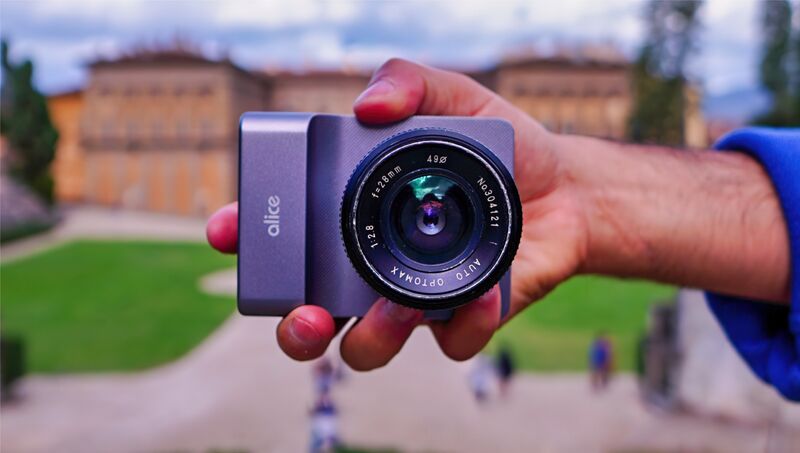
This Computational Camera Uses Machine Learning to Optimize Photographs
Rahul Kalvapalle — February 9, 2021 — Tech
A London startup by the name of Photogram has launched a futuristic computational camera that uses the wonders of AI and machine learning to continually improve the quality of imagery captured.
The Alice camera comes embedded with a proprietary AI mechanism which deploys deep learning to optimize and improve settings such as light exposure, color balance and autofocus. The camera is also more than capable of carrying out advanced operations such as shutter optimization, video stabilization and retouching.
In addition to its exceptional use of AI to enhance camera settings, this computational camera also happens to run on the open-source Linux operating system, allowing for endless customizability and modifications.
The camera can also be used in conjunction with a smartphone in order to provide the convenience of a compact camera along with the plethora of advanced features made possible by AI.
The Alice camera comes embedded with a proprietary AI mechanism which deploys deep learning to optimize and improve settings such as light exposure, color balance and autofocus. The camera is also more than capable of carrying out advanced operations such as shutter optimization, video stabilization and retouching.
In addition to its exceptional use of AI to enhance camera settings, this computational camera also happens to run on the open-source Linux operating system, allowing for endless customizability and modifications.
The camera can also be used in conjunction with a smartphone in order to provide the convenience of a compact camera along with the plethora of advanced features made possible by AI.
Trend Themes
1. AI-optimized Cameras - Technology startups can explore embedding AI mechanisms into cameras to optimize imagery and settings with machine learning.
2. Computational Photography - Innovators can explore advanced operations such as shutter optimization, video stabilization, and retouching in computational cameras.
3. Open-source Imaging - New developments in open-source software allow for endless customizability and modifications in computational photography.
Industry Implications
1. Photography - The photography industry can explore using AI and machine learning to optimize image quality and settings in cameras.
2. Consumer Electronics - Consumer electronics companies can develop cameras that offer advanced features such as video stabilization, retouching, and open-source software.
3. Smartphone Technology - Smartphone companies can integrate computational cameras with AI mechanisms to provide advanced features and convenience for users.
2.9
Score
Popularity
Activity
Freshness
























